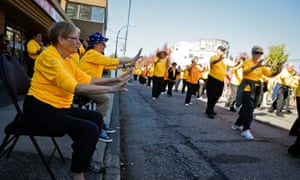
The findings differ from previous clinical trials in showing increases in brain volume and improvements in cognition with a largely non-aerobic exercise (Shaolin Rou Quan aka Tai Chi). In addition, intellectual stimulation through social interaction was associated with increases in brain volume as well as with some cognitive improvements.













































